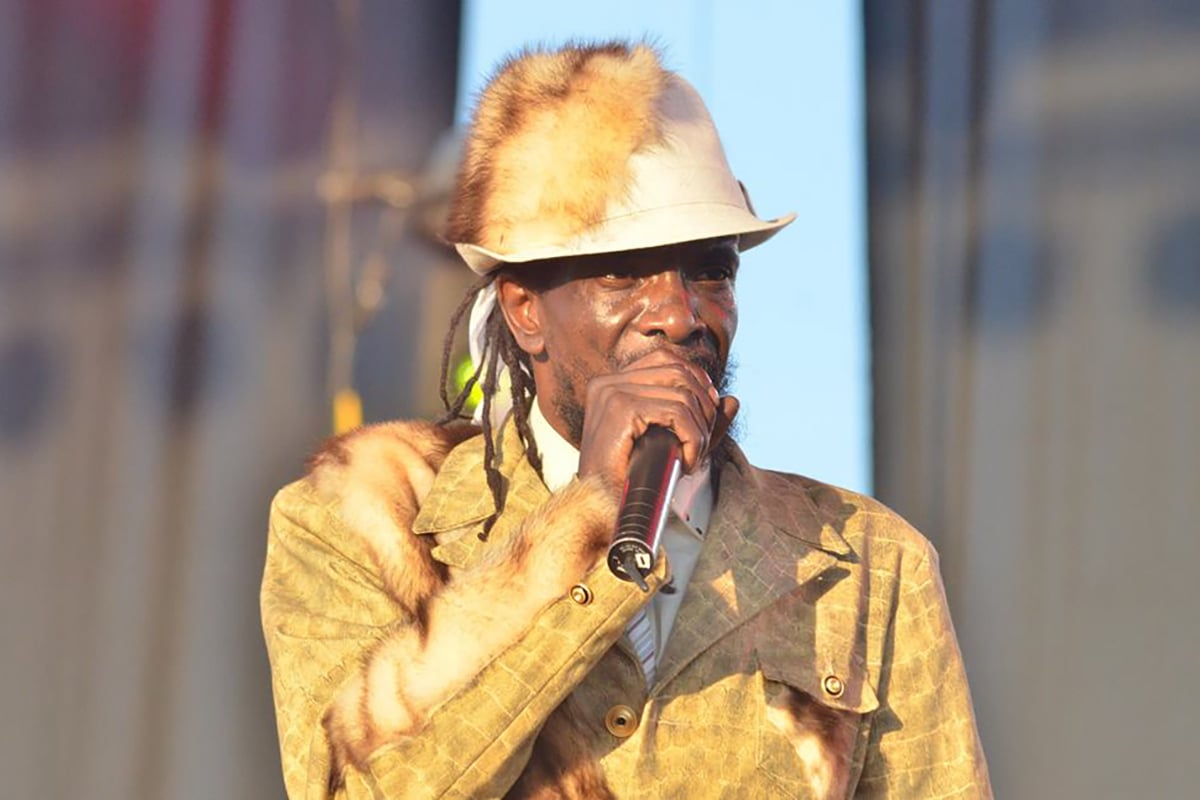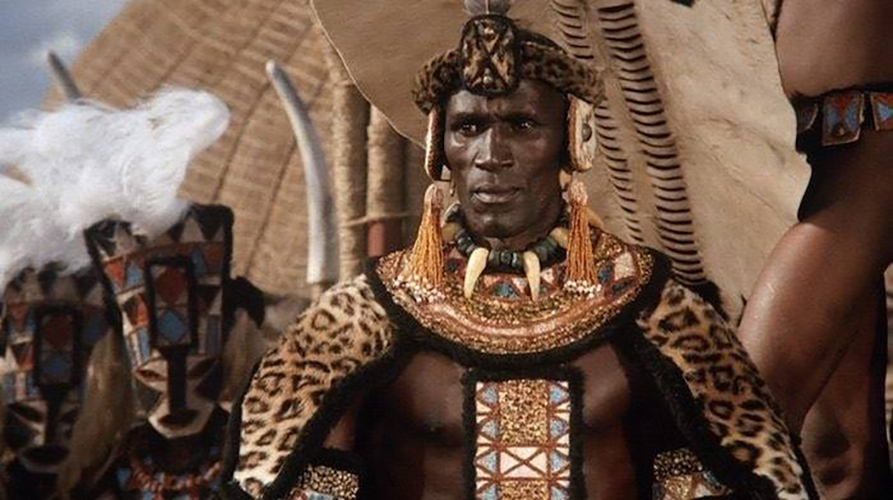Major Mackerel Apologizes For Mocking African Emperor Shaka Zulu In 1987 Song ‘Pretty Looks Done’

Dancehall veteran Major Mackerel has apologized for his portrayal of the African Emperor Shaka Zulu in his 1987 Dancehall song, Pretty Looks Done.
The song, which mockingly described Shaka Zulu as ‘ugly’ and compared him to unattractive wild animals, was born out of ignorance, Mackerel admitted to DancehallMag on Tuesday. “I was in England then and someone told me about a movie that was coming on TV called either Roots or Shaka Zulu. They told me it was a wicked man killing people and I believed because they didn’t teach us about Africa in schools when I attended,” he said. “If I had known back then how great of a man Shaka Zulu was, that song wouldn’t happen. But my ignorance led me to easily believe because of what they told me about the movie that time.”
His response came following criticism from Steven Golding, President of the Universal Negro Improvement Association (UNIA), who described the song as a vestige of slavery and a prime illustration of the learned behavior of self-loathing and abhorrence of things African.
Speaking at the First Annual Marcus Garvey Lecture in Lucea on Friday, Golding, in verbalizing the lyrics of Pretty Looks Done, said that a black man describing another black man as ugly while drawing parallels with wild animals was a portrayal he found deeply troubling, as a child back then.
“We have a culture which, for a long time, was resistant in our own self to accept our own self-identity. In the 80s there was a deejay by the name of Major Mackerel. He had a song; the song said ‘Shaka Zulu, yuh fava Shaka Zulu. Yuh ugly like a horse, like a patoo, snake, kangaroo’,” Golding stated in outlining the song’s hook.
The UNIA leader said that the man in question, whom Major Mackerel used as a marker of physical unattractiveness in Pretty Looks Done, was African actor and footballer Henry Cele who played Shaka, king of the Zulu nation from 1816 to 1828, in a 10-episode series which was ran on Jamaica Broadcasting Corporation (JBC) Television in 1986. Cele, Golding said, unlike the description given by Major Mackerel, was a good-looking man.
“He (Henry Cele) was a good looking fellow. Thick, strong – the man was a good-looking man. Years later I thought to myself: ‘what would possess a Jamaican deejay at the time when this movie was out to come up with a Shaka Zulu, yu fava’…what was his basis? And I can come up with no other reason, than Shaka was an African King, and anything African can be described as ugly, and accepted by a people who are in conflict with their identity. Who taught you to hate yourself?” Golding remarked.
Expressing respect for Golding’s critique, Mackerel offered an apology for any unintended misrepresentation of African culture and people.
He told DancehallMag: “I respect what Mr. Golding has to say. He has a right to his opinion and I sincerely apologise for any confusion or misrepresentation of the African culture and our people. If I had known how great of a man Shaka Zulu was, I would have never done the song like that. It was never my intention.”
Mackerel urged his fans and fellow artists to stay informed and respect cultural and historical figures. “To know is our greatest asset. I didn’t conduct any research when I did the song. Keep yourselves in the know and continue to keep our African culture alive,” he said.
During the lecture on Friday, Golding argued that the acceptance of lyrical content of that nature within the public sphere back then, had perpetuated harmful stereotypes about the physical appearance of black people. He also suggested that people who are in harmony with their heritage would not tolerate the denigration of figures who hold cultural significance.
“I have never heard an English person come out with a song seh; ‘yuh favour Queen Elizabeth’ or ‘ugly, disgusting yuh look like King George’. But we could take the name of, not an African King, but an African Emperor, and compare it to a screeching owl or a snake or any other animal that people find repulsive. How come?” Golding stated.
“Because of our experience as the children, as the sons and daughters of Africans who were enslaved and trafficked and brutalized and dehumanized in this country because of that we devalue ourselves; we devalue our ancestors; we devalue the very source of life on this earth, till this very day,” he added.
In February 2011, Reggae singer Tarrus Riley, unlike Major Mackerel, had venerated Shaka Zulu in the song Shaka Zulu Pickney , in what one entertainment journalist described as “a significant musical turnaround in just under 25 years”.
In the song, which was produced by Roshaun ‘Bay-C’ Clarke on the Nyabinghi riddim, Riley makes references to great African leaders among them Patrice Lumumba, Nyabinghi, Bobo Shanti, Kunta Kinte, Kuma and others, and declares himself an African.
Another song that served to neutralise the impact of Pretty Looks Done was Great Kings of Africa , a collaboration featuring singers Dennis Brown and Ini Kamoze, and dub poet Mutabaruka, who uplifted Shaka, noting:
“Now let no one fool you
Great was Shaka the Zulu
The British Army never did see
Such as fierce warrior as he”
Mutabaruka, like Golding, had said at the time Major Mackerel’s equation of ugliness with the Zule Emperor, was a case of ignorance. The dub poet had also said that there had been a popular outcry to radio stations who later stopped playing the song.
“You show them reasoning. You show them look ya man, if South Africans hear dat, come een like joke. De place weh a fight gainst Apartheid, Jamaica, the music help strengthen the liberation movement inna Zimbabwe an’ South Africa, only to hear now a Jamaican artiste a come out an say ugly like Shaka Zulu, it woulda so weird an’ strange,” Mutabaruka was quoted as saying in a Gleaner article.

